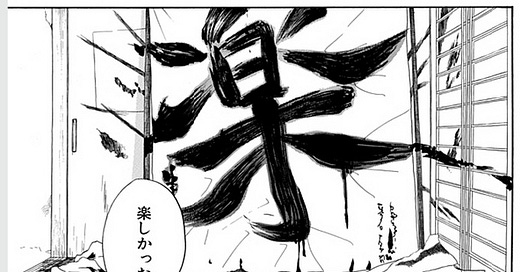Though I did not plan on staying in Japan long-term, only hoping to save enough money to fly back to Indonesia, I started writing down new words in Japanese immediately in my journal. I studied French in high school and college, so I was not a stranger to making vocabulary lists. But Japanese was challenging. That had been obvious on the bus ride into Tokyo that first night, seeing all the neon signs of Chinese characters, as well as hiragana and katakana. Japan is unique in the world for its utilizing three different writing systems. And it certainly made matters daunting in the beginning.
The U.S government categorizes the languages it teaches its foreign service personnel based on the number of hours it takes to attain “Professional Working Proficiency” –something that prioritizes speaking and reading, the easier aspects of language learning. The most challenging languages for English speakers are known as Category IV. These languages are Arabic, Korean, Cantonese, Mandarin, and Japanese. Languages in this group are considered to be exceptionally difficult, requiring eighty-eight weeks (2200 hours) of study. In contrast, a Category I language, like Spanish, takes twenty-four weeks (600 hours).
Is Japanese that hard?
After Japan’s defeat in World War II, one of the famous novelists of the time, Naoya Shiga, published "National Language Issues" in the periodical Kaizo, in which he proposed that the Japanese language be abolished. And more, he suggested the country adopt French, “the most beautiful language in the world.” This created a huge uproar, given Shiga’s stature as an artist. It also fed into the suspicion the Japanese had at the time that their “exceeding difficult language” could be holding them back in terms of development.
Again and again, Japanese people would tell me how difficult Japanese is. I always thought it was a way to encourage me by saying, “It’s hard for us too!” But it wasn’t just the Chinese characters that Shiga found problematic, otherwise he would just have suggested they start using hiragana to write. This was what happened in Korea, when Hangul was developed in the 15th century. Because it was devised with much study and thought after using the Chinese system for a thousand years, Hangul is an almost perfect phonetic system.
Shiga knew this was a possibility and yet he suggested French because he felt it was not only the characters that was the problem. The defeat in the war had caused much soul-searching in Japan, leading to the idea that the Japanese language was somehow “too ambiguous”—aimai na nihongo. And that this had ultimately caused the country’s downfall.
Tetsuya thought this was ridiculous. “Japanese is a language that is as capable of specificity and accuracy as any other language. Plus, it is much more beautiful than French!”
I agreed. But I never would have embarked on serious study if I hadn’t met Tetsuya.
The Shiga Naoya anecdote is told wonderfully in a classic book on the Japanese language called, — Japanese Language: Learn the Fascinating History and Evolution of the Language Along With Many Useful Japanese Grammar Points by Haruhiko Kindaichi. I really recommend the book which has aged well.
The introduction of Jay Rubin’s classic, Making Sense of Japanese: What the Textbooks Don't Tell You by Jay Rubin has a great takedown of the “Zen mysteries” of Japanese as expressed in James Clavell’s Gaijin (which I also want to re-read).





Wonderful post!
I wonder how English difficulty would rate with native speaking Japanese learners? Otherwise, FWIW, on a very very basic level: Your post (here) about Hagoromo, along with two other brief English explanations of the story: your discussion, Leanne, was the only one that included those pivotal words "Doubt is for mortals; in heaven there is no deceit". Certainly for the Western mind, this is the "reason for the story". Its absence in the other two English explanations leaves the Western mind wondering "So?" Western drama does center on conflict and its resolution. If I was just walking along the street and kicking a pebble, from which I trip and fall, the Western mind-ers would want to know about the state of my psyche. Even if the street was a pothole paradise with accidents "just waiting to happen". Specificity from whose point of view? and by what means? Is this what Japanese structures so differently?